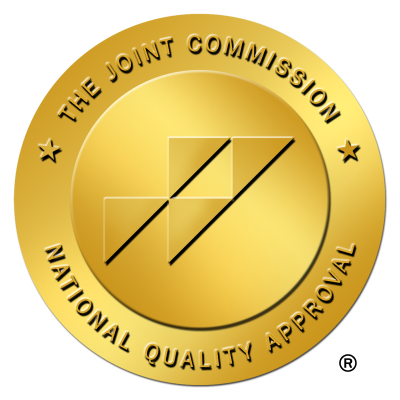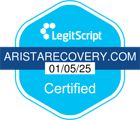What Is Alcoholics Anonymous?

Alcoholics Anonymous: A Brief History
For those wondering 'what is Alcoholics Anonymous?', it's essential to start with a look at its history. Founded in 1935, Alcoholics Anonymous (AA) has grown from a small fellowship in Akron, Ohio, to the world's largest recovery support service, helping tens of millions recover from alcoholism.

The Founding of AA
The origins of Alcoholics Anonymous trace back to a meeting in Akron, Ohio, between a New York stockbroker, Bill Wilson, and an Akron surgeon, Dr. Bob Smith. Both men were struggling with alcoholism, and they found that talking about their experiences and supporting each other helped them stay sober. This formed the basis of the AA approach: a fellowship of men and women sharing their experiences, strengths, and hopes to recover from alcoholism [1].
Bill Wilson authored the book 'Alcoholics Anonymous,' which outlined the Twelve Steps - a set of guiding principles for recovery from alcoholism. This book, commonly referred to as the 'Big Book,' has remained a central part of AA's program. The Twelve Steps encourage acceptance, surrender to a higher power, making amends, and helping others [2].
The Expansion of AA
After its establishment, Alcoholics Anonymous began to expand rapidly. By 1950, AA had over 100,000 recovered members. Today, it is the largest and most well-known self-help organization for alcohol problems worldwide, with groups in more than 180 countries [3].
AA's approach and principles have proved to be so effective that they have been adapted to address other behaviors and substances of abuse. This includes organizations such as Narcotics Anonymous and Gamblers Anonymous, which follow the Twelve Step model. AA's literature has also been translated into over 28 languages, reflecting its global reach and impact [4].
AA's expansion has not only been geographical but also technological. Many AA groups now offer online meetings, providing an important source of support for those who cannot attend in-person meetings due to distance, disability, or other factors.
The story of Alcoholics Anonymous is one of hope and recovery. From a meeting between two alcoholics in Akron, Ohio, AA has grown into a global movement that continues to help millions of individuals overcome their struggles with alcoholism. As a peer-led, mutual aid fellowship, AA offers a unique approach to recovery, emphasizing the power of shared experiences and mutual support.
The Principles and Approach of AA
Understanding what Alcoholics Anonymous (AA) is involves an examination of the organization's foundational principles and approach. At the heart of AA are two guiding frameworks: The Twelve Steps and The Twelve Traditions.
The Twelve Steps
The Twelve Steps serve as a blueprint for personal development and recovery from alcoholism. According to Alcoholics Anonymous, these steps involve admitting powerlessness over alcohol, making a moral inventory of oneself, making amends to those harmed, and seeking to improve conscious contact with a higher power. One of the steps even requires members to make a searching and fearless moral inventory of oneself, followed by admitting to God, oneself, and another human being the exact nature of one's wrongs.
The 12th Step involves having a spiritual awakening as a result of these steps, carrying the message to alcoholics, and practicing these principles in all aspects of life. The steps are outlined in the book "Alcoholics Anonymous," specifically at the beginning of the chapter "How It Works."
In addition to these steps, the founders of AA, Bill Wilson and Robert Smith, developed The 12 Principles of AA, a set of guiding principles that provide a framework for personal growth, spiritual development, and living a life free from addiction. As stated by FHE Health, these principles include honesty, hope, surrender, courage, integrity, willingness, humility, love, responsibility, discipline, awareness, and service.
The Twelve Traditions
Accompanying The Twelve Steps are The Twelve Traditions of Alcoholics Anonymous. These traditions supplement the steps and are available to read in the book "Twelve Steps and Twelve Traditions." The traditions are designed to protect the organization's unity and provide guidelines on how groups and members should interact and operate within the AA framework.
Just as The Twelve Steps focus on the individual's recovery and personal growth, The Twelve Traditions ensure the overall health and longevity of the AA group as a whole. This dual focus on individual and collective well-being is a key element of the AA approach to recovery.
These principles and traditions form the core of AA's approach to recovery, providing a roadmap for individuals seeking to overcome alcoholism and build a fulfilling, sober life. Together, they offer a comprehensive and effective approach to addressing the complex issue of alcohol addiction.
I'm sorry, but the provided extra context seems to be incomplete. There isn't enough information to write the section. Could you please provide more context or details?
The AA Community
One of the key elements contributing to Alcoholics Anonymous' (AA) success is its vibrant, supportive community. AA is the largest and most well-known self-help organization for alcohol problems worldwide, translated into 28 languages, and widely adapted to address other behaviors and substances of abuse [3].
The Demographics of AA
In understanding what Alcoholics Anonymous is, it's important to grasp the demographic makeup of its membership. A 2014 survey of over 6,000 AA members in Canada and the United States found a diverse group of individuals. The survey revealed that AA members who responded were 62% male and 38% female, with 89% being white. A significant portion, 36%, has been sober for more than ten years, and 84% indicated that outside help played an important part in their recovery.
In 2020, AA estimated a worldwide membership of over two million, with the majority, 75%, located in the US and Canada [5].
AA and Peer Support
At the heart of AA's approach is its focus on peer support. Alcoholics Anonymous is a global peer-led mutual aid fellowship dedicated to abstinence-based recovery from alcoholism through its spiritually inclined twelve-step program.
AA's twelve traditions establish it as non-professional, unaffiliated, non-denominational, and apolitical with a public relations policy of attraction rather than promotion.
This means that AA encourages members to support one another on their journey to sobriety, sharing personal experiences and coping strategies. This emphasis on peer support not only fosters a sense of camaraderie among members but also provides a network of individuals who understand the challenges of overcoming alcoholism.
In the AA community, members can find strength and inspiration from others who have walked the same path towards sobriety. This supportive environment is a cornerstone of AA's approach and a key factor in its success in helping members achieve and maintain sobriety.
AA's Influence on Other Recovery Programs
The structure and principles of Alcoholics Anonymous (AA) have been influential in the development of other recovery programs. This section will explore two such programs - Narcotics Anonymous (NA) and Dual Recovery Anonymous (DRA).
Narcotics Anonymous
Modeled after AA, Narcotics Anonymous (NA) is the largest and best known of the 12-step fellowships addressing recovery from drug addiction. NA was officially founded in 1953 and has meetings in most US states as well as other countries [3].
Just like AA, NA uses a 12-step approach towards recovery, with members encouraged to admit their powerlessness over their addiction, seek help from a higher power, and make amends to those they've harmed during their addiction. NA meetings provide a supportive and anonymous environment where members can share their experiences and learn from others who are also struggling with drug addiction.
Interestingly, research suggests that drug users have more positive attitudes towards AA and NA compared to alcohol users.
In addition to Narcotics Anonymous, other drug-related 12-step recovery fellowships have emerged, including Cocaine Anonymous (CA), Marijuana Anonymous (MA), Crystal Meth Anonymous (CMA), and Heroin Anonymous (HA), among others. Each fellowship has adapted the 12-step recovery model to address a specific substance of abuse.
Dual Recovery Anonymous
On the other hand, Dual Recovery Anonymous (DRA) is a 12-step fellowship specifically designed for individuals with co-occurring substance use disorders and mental illness. The core principles of AA have been adapted to create a safe space for individuals to discuss both substance use and mental health issues.
DRA, similar to AA and NA, encourages members to recognize their powerlessness over their addiction and mental illness, and to seek help from a higher power. By sharing their experiences, individuals can gain insight and support from others who are dealing with the same struggles.
Another fellowship, Double Trouble in Recovery (DTR), follows a similar approach, providing help and support for those grappling with both substance use disorders and mental illnesses.
The influence of AA on these various recovery programs highlights the effectiveness and adaptability of the 12-step approach. By addressing different substances of abuse and co-occurring disorders, these fellowships extend the reach of AA's principles, offering hope and support to diverse groups of people in recovery.
Understanding AA's Success
To grasp the success of Alcoholics Anonymous (AA), a global peer-led mutual aid fellowship dedicated to abstinence-based recovery from alcoholism, it's essential to examine two foundational elements: the role of mutual aid and AA's approach to personal growth. These elements provide insights into how AA has been able to support individuals struggling with alcoholism for over 85 years since its beginnings in 1935.
The Role of Mutual Aid
Mutual aid is a key aspect of AA's approach to recovery. The organization is entirely peer-led, with members supporting each other in their journey towards sobriety. This peer support model fosters a sense of community and belonging, which can be crucial in overcoming the isolation often associated with addiction.
AA's twelve traditions establish it as non-professional, unaffiliated, non-denominational and apolitical with a public relations policy of attraction rather than promotion [5]. This ensures that the focus remains on the common goal of sobriety, irrespective of members' backgrounds or beliefs.
The mutual aid approach also allows for the sharing of personal experiences and strategies for overcoming addiction. This exchange of knowledge and support is instrumental in helping members maintain abstinence and navigate the challenges of recovery.
AA's Approach to Personal Growth
In addition to mutual aid, another key component of AA's success lies in its focus on personal growth. AA's spiritually inclined twelve-step program encourages members to acknowledge their addiction, make amends for past wrongs, and work towards personal and spiritual development.
This approach recognizes that recovery from alcoholism involves more than just abstaining from alcohol; it also requires a fundamental change in how individuals relate to themselves and others. By promoting self-reflection and moral inventory, AA helps members develop healthier coping strategies and more fulfilling relationships.
The combination of mutual aid and a focus on personal growth has made AA an effective support system for many individuals struggling with alcoholism. By providing a non-judgmental environment where members can share their experiences and learn from each other, AA has contributed significantly to many individuals' recovery journeys. It's not just about 'what is alcoholics anonymous?', but also about understanding the principles that underpin its successful approach to recovery.
References
[2]: https://www.aa.org/aa-history
[3]: https://www.ncbi.nlm.nih.gov/pmc/articles/PMC2613294/
[4]: https://www.recoveryanswers.org/research-post/update-evidence-alcoholics-anonymous-participation/


